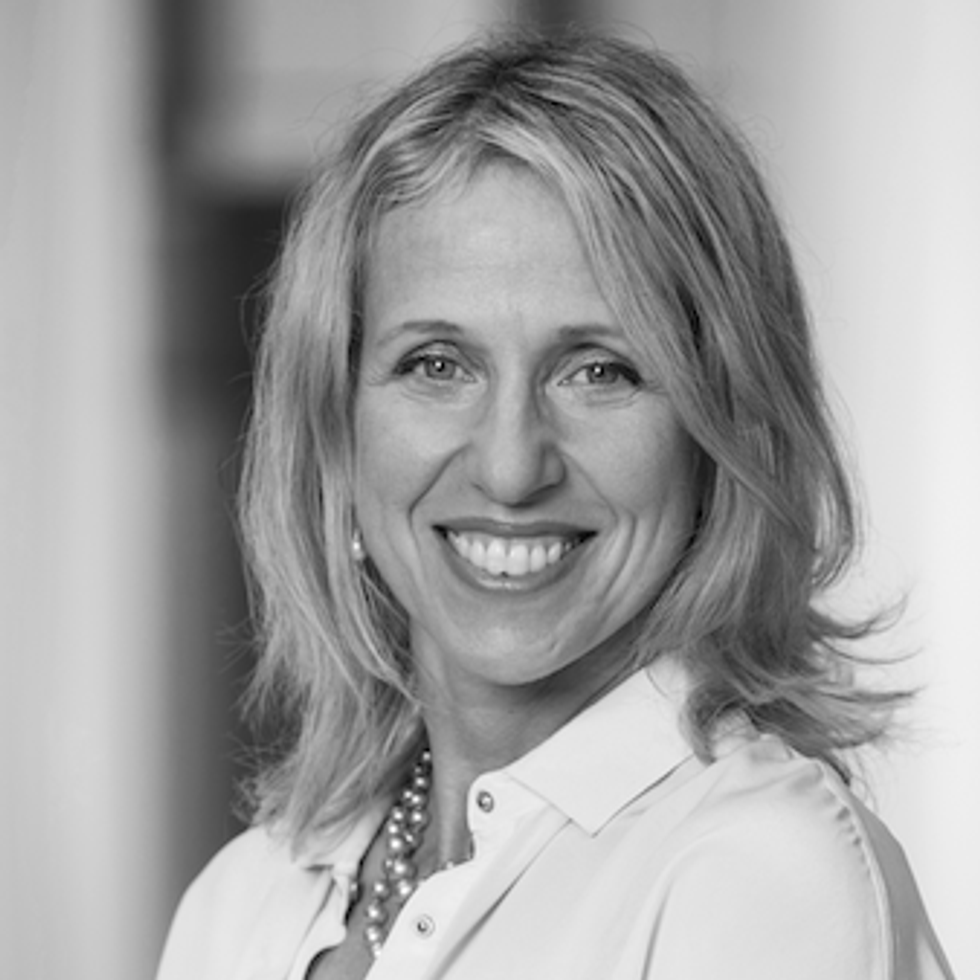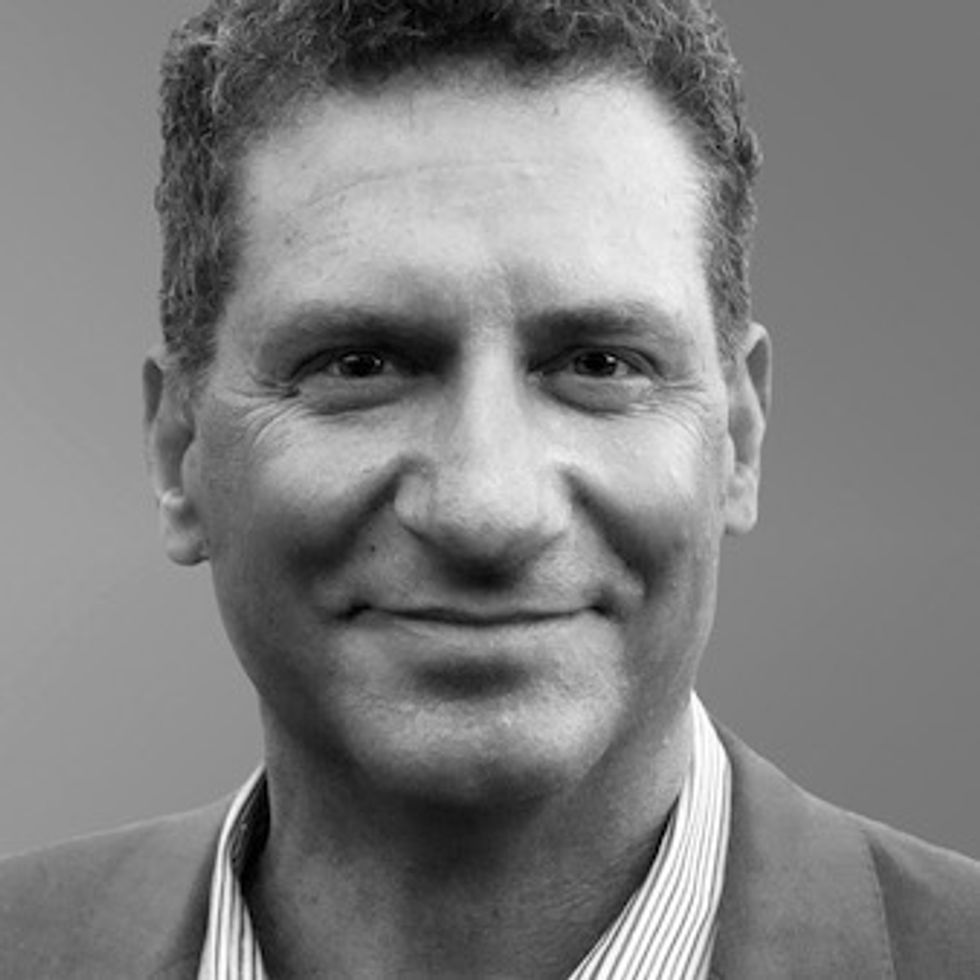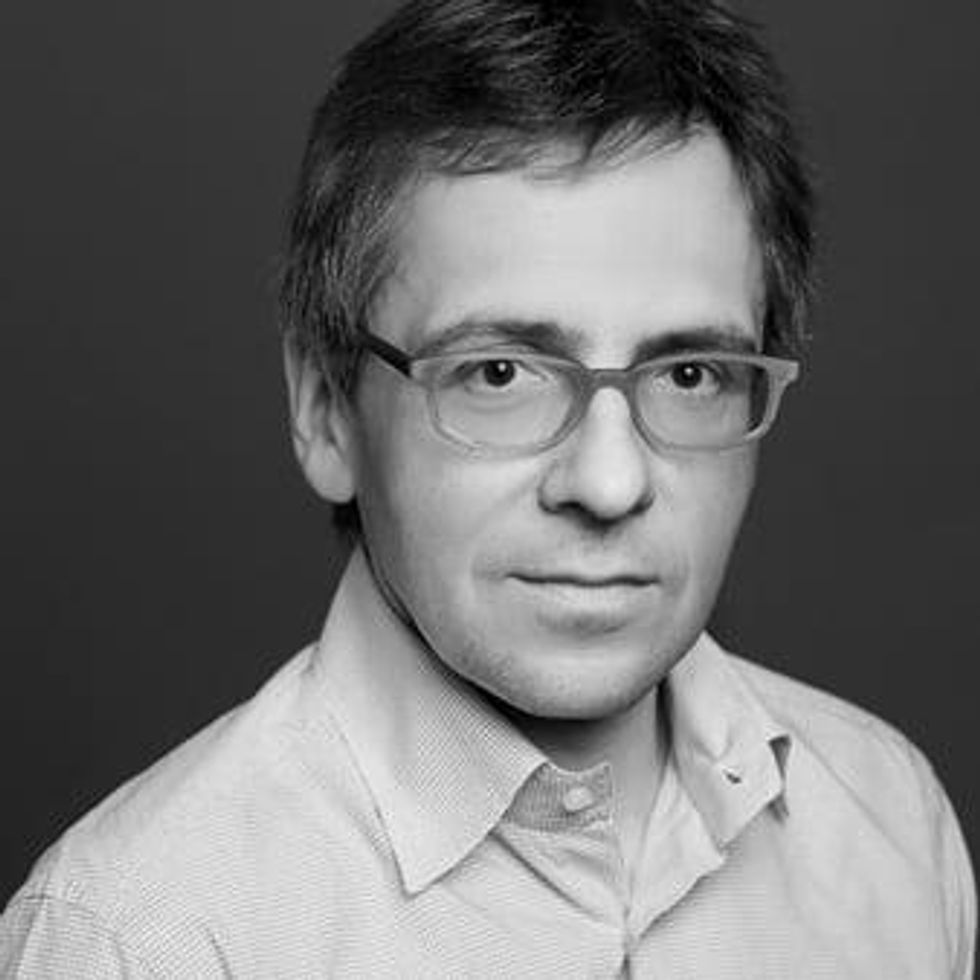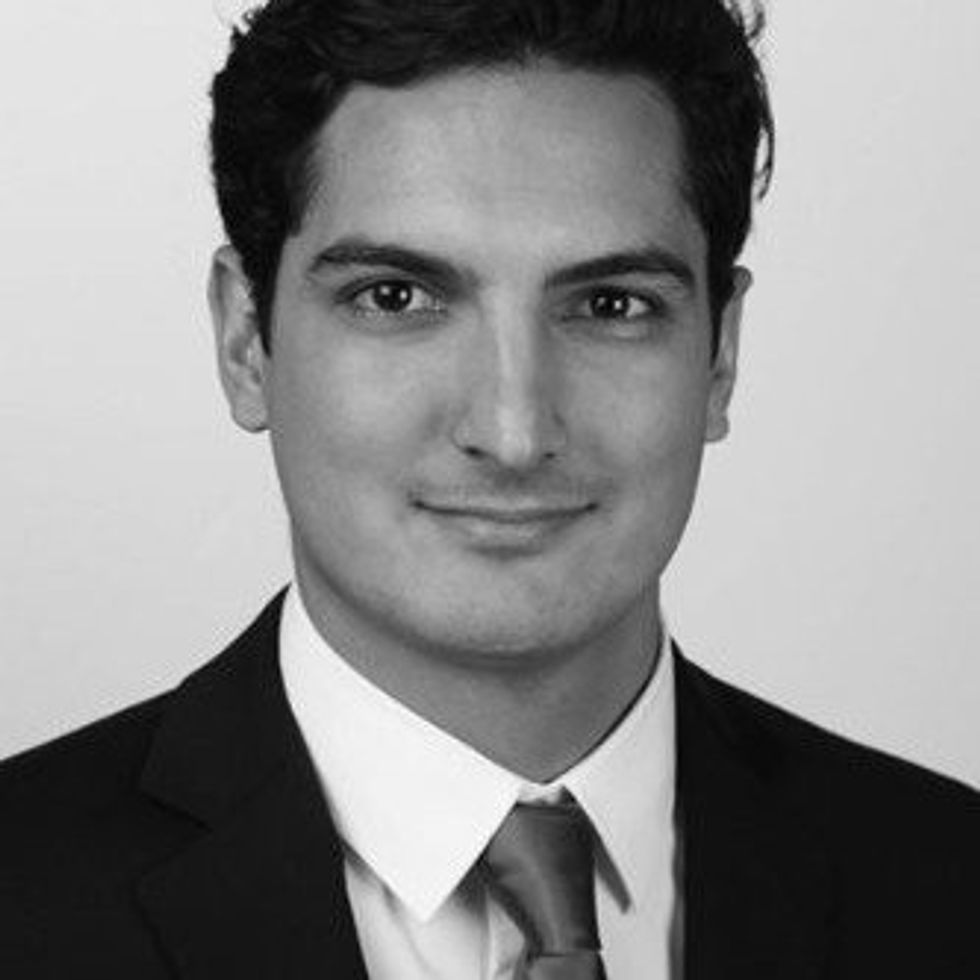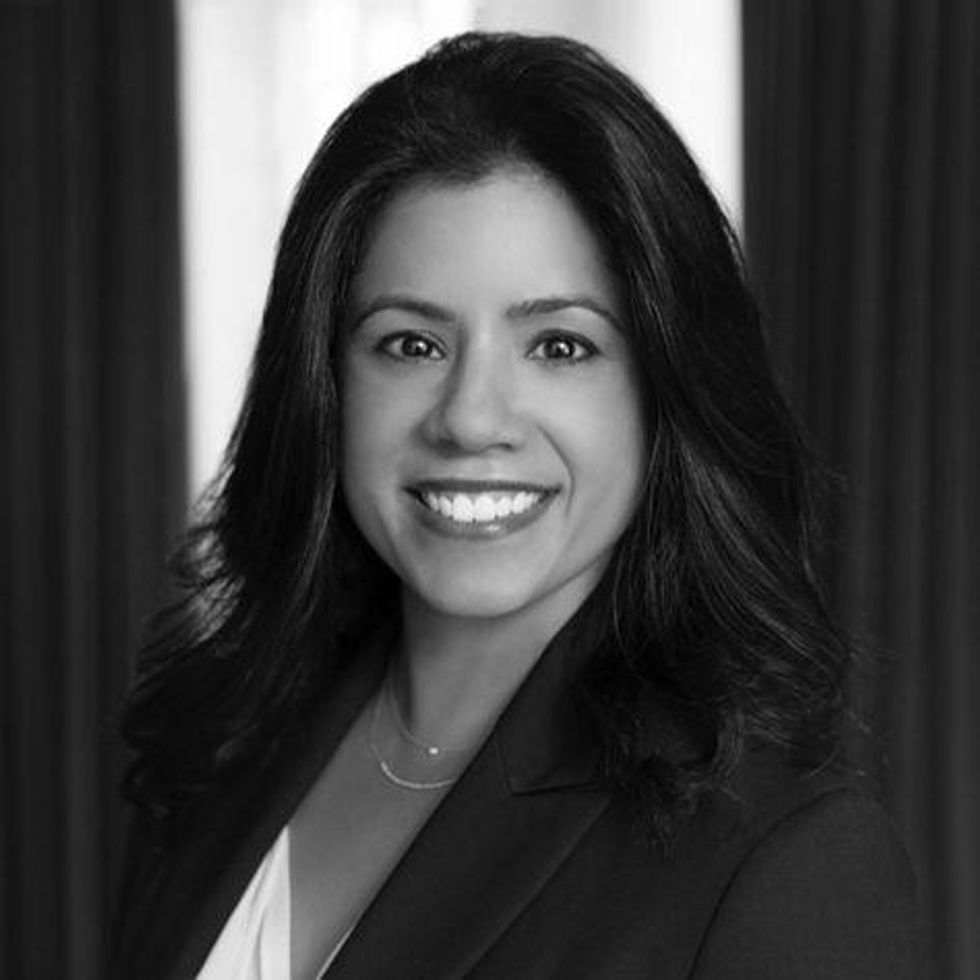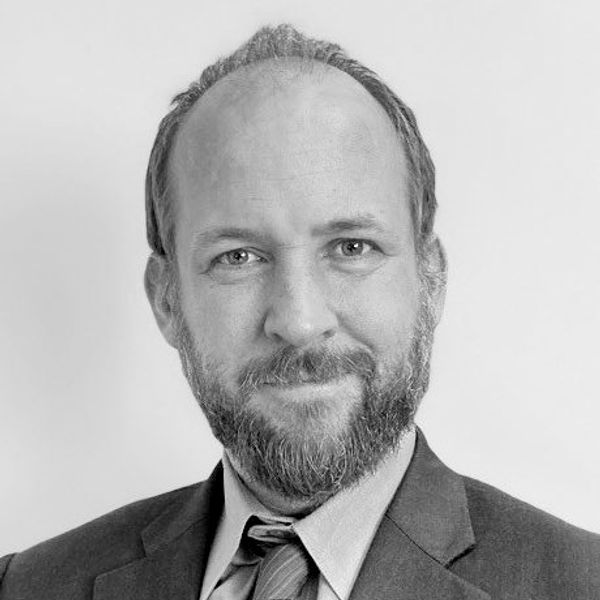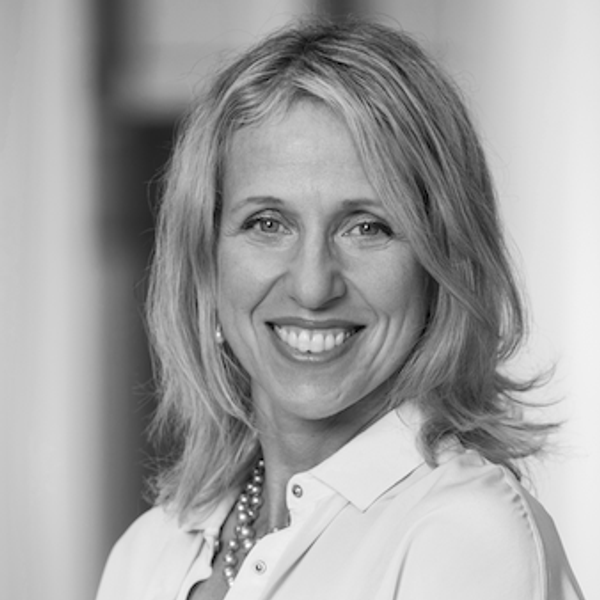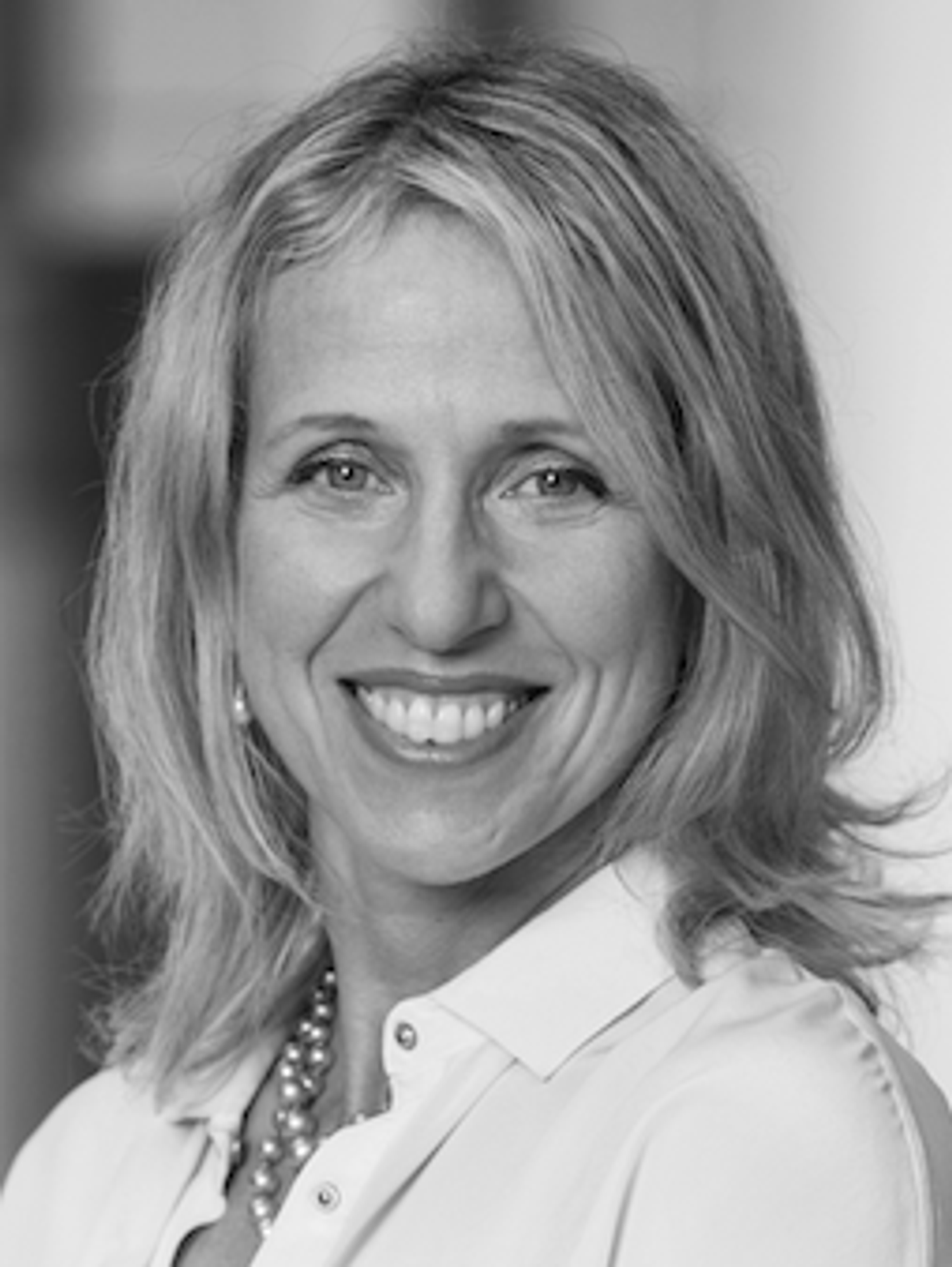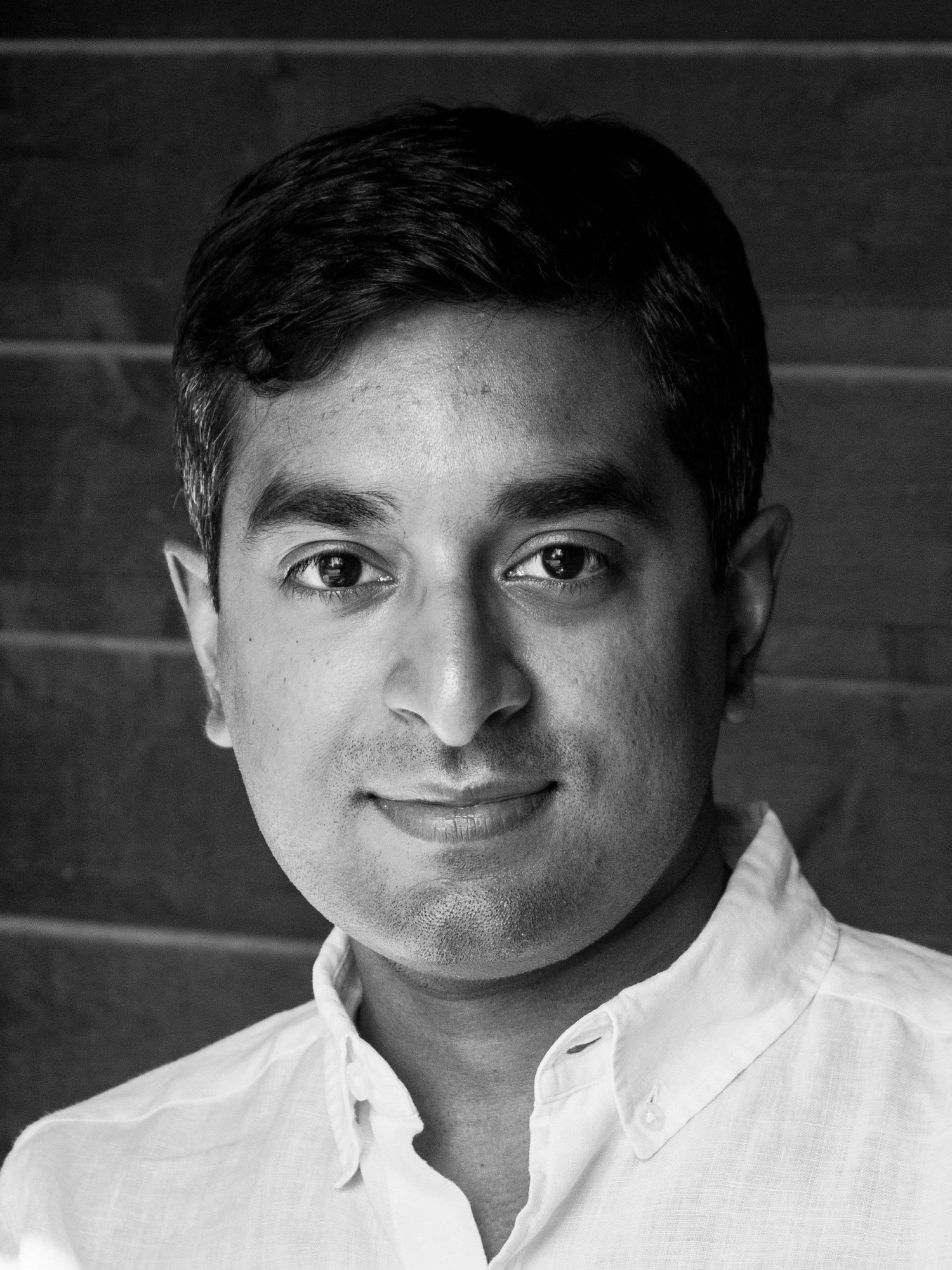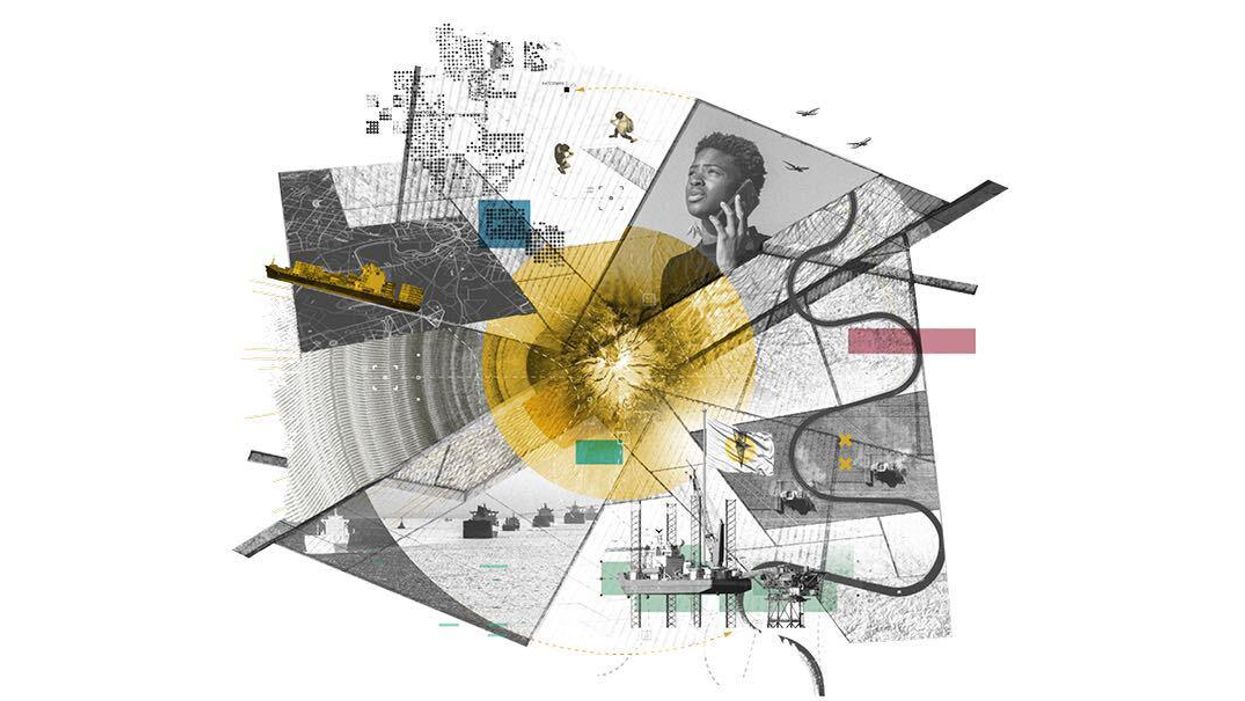
Episode 5: Could today’s crisis lead to future growth?
Listen: “Geopolitics and their impact on the markets are greater right now than at any point in my professional life,” said Ian Bremmer, president of Eurasia Group and GZERO Media. In this episode of “Living Beyond Borders,” a special GZERO podcast series brought to you by Citi Private Bank, we’re looking at the current state of the global economy.
Transcript: Season 3, Episode 5: Could today’s crisis lead to future growth?
Disclosure: The opinions expressed by Eurasia Group analysts in this podcast episode are their own, and may differ from those of Citigroup Inc and its affiliates.
Ian Bremmer: In an environment where the near term has more losers than winners, the near term looks more problematic and more crisis prone, you actually are creating a lot of the opportunities for the medium and long term
David Bailin: When people are investing well, they're not thinking about their portfolio value one day, one week, and one month from now. They're thinking about creating wealth by putting their dollars in the right places, the right industries, the right technologies, and doing that with a view 2 years to 10 years out.
Shari Friedman: Welcome to Living Beyond Borders, a podcast from Citi Private Bank and GZERO Media. On this program, we examine global risks and opportunities from the angles of both politics and economics. I'm Shari Friedman, managing director of climate and sustainability at Eurasia Group.
A Roman leader who presided over the empire during one of its longest periods of peace and prosperity had this to say about trying to predict the future, "Never let the future disturb you. You'll meet it, if you have to, with the same weapons of reason, which today arm you against the present." What Emperor Marcus Aurelius believed in the second century AD still rings true today. And while we can't predict the future, we can still think, plan, and prepare for it. It's hard to believe that we've already... It's hard to believe that we're already halfway through this year in the 21st century, 2022, but as we look ahead to the rest of the year and what some of the greatest risks and opportunities will be for all of us, we wanted to bring in two experts to track the evidence and help us better understand and help us better inform our decisions.
Shari Friedman: We're joined today by David Bailin, chief investment officer and global head of investments at Citi Global Wealth, and Ian Bremmer, president of Eurasia Group and GZERO Media. Welcome.
Ian Bremmer: Hi, there.
David Bailin: Thank you for inviting me.
Shari Friedman: David, it seems like the last few months have been especially tough for investors with all kinds of shocks hitting them in bunch of different directions. So, in the big picture, what is top of mind for you right now when it comes to risks and opportunities? What do we need to be aware of at mid-year?
David Bailin: Well, it has been quite the start to 2022. Let me begin by talking about the two years prior to that. What we saw was really a pandemic and then a giant save, produced by governments and the Fed that stimulated the economy and caused a boom, and that boom really caused markets to not only appreciate but to anticipate a continuity of appreciation in values that really was unsustainable. So we had this boom. And then really, toward the end of 2021, we began to see it fraying in a whole variety of ways. When we entered 2022, things changed, and the things that changed were two and they were very large. One was the Fed pivoting from being very accommodative to saying, "Oh my god, there's an incredible amount of inflation out there, and we have to crush that. We have to treat it as a major problem," whereas until really that moment, they had not done so.
And then we saw Russia's invasion of Ukraine, which caused another giant shock to the ecosystem that influenced energy prices, it influenced commodity prices, and obviously, it changed geopolitics which, by definition, changes investment. And so what happened at this year, when you look at the numbers, is relatively straightforward. We saw the concomitant fall of equities and fixed income in a substantial amount, which is a rare market event and signals a turning point for investors. That's where we are right this second.
Shari Friedman: Ian, what are you looking for or expecting, particularly looking at the second half of this year?
Ian Bremmer: Well, the geopolitics and their impact on the markets are greater right now than at any point in my professional life. And there are a lot of structural reasons for that, but most immediately, the playing out of the Russian invasion into Ukraine has global impact. I want to be clear. This is the first time we have ever seen this level of economic sanction being placed on a G20 economy, much bigger than Iran, much bigger than Venezuela, and integrated with the global economy. But the Americans, the Europeans, the Asian allies, all of the advanced industrial economies are basically saying, "We are going to forcibly decouple your economy from us." And of course, that, first of all, meant that a massive contraction in Russian GDP and expectation of 10 to 15% down this year. And that's just the beginning. And so concerns of what it will mean when you try to implode the economy of an adversary that has five, six thousand nuclear warheads, that's a longer-term market concern, but more immediately, you have the Europeans saying, "We are no longer going to buy coal and soon oil," and, in relatively short order, "gas from Russia." And that has spiked oil prices well beyond $100.
Ian Bremmer: And it's not just about the fact that the Europeans used to get so much energy from Russia. It's also that most of the shipping and the shipping services and the insurance and the reinsurance, that's a European market. And if they're boycotting that from Russia, then the Russians don't have another place to get that out. And if they do, then that's taking away from energy that the Iranians are exporting or others that are exporting that have worse shipping services. So the reality is that we are going to see far greater inflation that is purely geopolitically driven coming off of energy and fertilizer and food and that is structural. We will certainly see that for the remainder of the year, because there is no real possibility of ending this war anytime soon. And it likely has medium-term implications, which are easily as big.
Shari Friedman: Where are you seeing moving forward the biggest economic risks, globally?
Ian Bremmer: Well, I mean, look, structurally the big problem is that you've moved from a world of globalization, where the biggest trend is completely aligned with efficiency and growth. And for 50 years, the biggest trend in the global economy has been let's move goods and services and people and data and capital faster and faster across borders. And the markets love that. And multinational corporations love that. And rich people love that. And a global middle class loves that too. It has been accompanied with an extraordinary growth in human development. But what we are now seeing are three different types of decoupling. The first I've already mentioned, which is the decoupling of Russia from the advanced industrial economies. It is the single biggest geopolitical decouple of any economy in history. And it's happened all of a sudden. It was not happening four months ago. Now. It is. That is a very big deal, and that is driving markets.
Ian Bremmer: You have a broader decoupling between the United States and China that's been going on for a while, and it's not a whole decoupling. It's not ending into economic interdependence, thankfully, between the two largest economies in the world. But it certainly is making it much harder in areas that are broadly defined as connected to national security. And the Americans and the Chinese define those things differently.
Ian Bremmer: And then, finally, you have a decoupling that is happening as an incremental move from the anti-establishment political trends in countries all over the world, developed and developing, mostly democracies, where their populations are saying, "We're not getting what we thought we were getting out of free trade. We're not getting what we thought we were getting out of you supporting corporations. So we want you to in-source. We want you to cut off your exports to other countries." And you see that... "And we want you to support your local industry." And you see that with chicken in Malaysia and palm oil in Indonesia and wheat in India, and you see it with infant formula in the United States. And all of these are functionally taxes on the global markets, driven by domestic political trends, where governments were not dealing with fraying social contracts for decades. And now those populations have become restive, they've become powerful, and they're forcing greater redistribution, even if that's inefficient, from their political leaders presently, and that's going to keep happening.
Shari Friedman: David, everything that Ian just laid out affects markets and investments. And I know that Citi has written a lot about beating the cash thief. And so could you talk a little bit about what that is and why beating the cash thief is a top priority right now?
David Bailin: So what Ian described is a significant amount of greater friction in the economy, globally. And that is, in fact, the story of what is taking place today and the entire G2, the division of the world, as Ian properly defines it between east and west and certainly between Russia and Europe. And these divisions are going to be costly in the sense that they are going to cause a frictional amount of inflation. We're predicting that inflation will be three and a half percent when we look at the end of 2023 versus 2% for the last decade, reflecting that change. But what Ian was also talking about is the incredible penalty that's being applied to agriculture to fertilizer to gas to oil to energy complex, in general, all of which is taking a huge cut out of the global economy. And that is really due to inflation, the cost of goods that people buy, and the need for them to then make choices as to what they want to buy and what they're going to not purchase. That's what's taking place right now.
David Bailin: All of that, of course, is slowing the global economy. So when we talk about the cash thief, it used to be that if you had a dollar in the bank at the beginning of the year, and you earned some interest from the bank and inflation was 2%, you might lose 1% in the value of that dollar. Didn't feel significant. But imagine now, if you started with a dollar in the bank and you knew that a year and a half from now, you would have only 88 cents or 85 cents. That will change your behavior. That will make you want to buy more things today because you know your currency is going to be worth less tomorrow. And so when we talk about beating the cash thief, we're really talking about two things. One is making sure our investors actually invest their cash in productive assets, financial assets, or other assets. And the second thing is for them to reflect upon the idea that cash itself is a huge drag on the total value of their portfolio, which wasn't true just two years ago.
Shari Friedman: One of the unstoppable trends that Citi is looking at right now is digitization. Why is that such an important trend, despite all the volatility that we've seen this year?
David Bailin: Well, an unstoppable trend, and there are several of these, fall into the category of things we know are going to take place over the course of the next decade and should invest in. We know that high energy prices that Ian talked about are going to cause the acceleration of alternative energy sources. We know that people are going to get older, whether it's in Japan and the United States, live longer and spend more on healthcare. And we know that digitization, i.e. the way we actually transfer money or the way we actually transfer information, all of that is going to have a profound impact on the global economy and actually is anti-inflationary. And what we want to do with these unstoppable trends is make sure that a typical portfolio contains actual investments that reflect those trends.
Shari Friedman: Digitization has been a part of a conversation about the relationship between China and US, and I think that it - clearly broader - there's so much to bring into that conversation as well. What, if any, shifts have we seen in that relationship, China and US, in recent months because of Russia's war in Ukraine or other reasons, and what might be likely to happen later this year?
Ian Bremmer: Well, first, I want to say that in the same way that the relationship between the US and the Soviet Union never tipped into hot war and was constrained in doing so because of the mutually-assured destruction of having all these nuclear war heads aimed at each other, the relationship between the US and China is actually constrained from tipping into cold war because of the immense economic interdependence that continues to exist between the two countries. And you wouldn't know that or think that when you read the headlines because there's no trust between the two countries, and the politics are expeditious for beating each other up, but it is a reality. And it's also a reality that Biden and Xi Jinping know each other reasonably well, unlike Biden and Putin. And Biden is someone who believes in the Great Man theory of sit down with somebody and work things out.
Ian Bremmer: And they do feel like they understand each other, even if they don't agree on an awful lot. And I think that helps, so that when Biden makes a mistake on Taiwan or misspeaks and that people say, "Oh, he's changing policy" and then the White House walks it back, Xi Jinping's inclination is not to beat up on the United States and jump on that because he has a decent sense of what Biden's about and vice versa. I think that actually helps, and people don't talk about that enough. I mean, when I have conversations with Biden, he brings that up. He talks about that in a way that he would never say with Putin, and I think it makes the US-China relationship more stable. But more broadly than that, let's be clear that China did... Xi Jingping stood up on February 4th and told Putin and told the world that "We have this new friendship without limits."
Ian Bremmer: And that was when China thought that if there was going to be any military incursion into Ukraine, that it wasn't going to be a big deal, that it wasn't going to be... It wasn't going to lead to what we've seen. This was a huge surprise. Obviously, for Putin, he made this, I think, biggest misjudgment of any leader on the global stage since the Soviet Union collapsed, since the wall fell, and he's been massively punished for it. In fact, I think if Putin had any idea of what was the fate that would befall his country once he invaded, I don't think he would've done it. But Xi Jingping is now stuck with this statement and relationship, and the reality is that Xi hasn't done an awful lot to provide support for Russia. I mean, a lot of Chinese companies that were doing business in Russia before February 24th aren't anymore. And that's because even though they may have shared worldviews, they also have lawyers. And they understand that the United States putting sanctions on these companies would be really problematic if they fall afoul of it.
Ian Bremmer: And so when the Americans told the Chinese "Don't you break these sanctions, and don't you provide military support for Russia," the Chinese have largely gone along, even though their diplomatic posture has been much more aligned with Russia, and their votes at the UN have been more aligned with Russia than they have with the United States and with Europe. And most recently, Xi Jingping has had a couple phone calls in the last couple weeks with Macron and with Olaf Scholz. And, in both cases, what he was privately saying is, "Look, we recognize Ukrainian territorial integrity. We recognize their right to self-determination. This war is a disaster for us. It's a disaster for you. We need to get a conversation going. The Americans say that there has to be victory, but we know that you, the French, and the Germans actually just want this war to be over. So do we. Let's find a way to work together." And Macron has reflected that publicly a little. The Germans certainly have privately, but the reason I say all of this is not because I think we should suddenly start trusting the Chinese, but rather that we aren't on the precipice of Xi Jinping being tarred with the same brush that Vladimir Putin has been, and I think that should come as a huge relief to the markets.
Shari Friedman: Mm-hmm. David, following on to what Ian's saying, where are the markets finding relief, and where are you seeing the biggest political and policy risks in terms of their impacts on the economy and on investors?
David Bailin: Well, I hesitate to disagree with Ian. I think that what we're seeing now is great clarity on who is with whom and what it means for the longer term. So what's happened as a result of this war is that things have become more clear, what NATO means, which was somewhat diffused before. It's going to be a stronger alliance with more money and more arms and more, frankly, attention than it ever had since World War II. How Russia is viewed based on what Ian has said will be of permanent changes in the way trade is done with Russia, and that will have, over time, very deleterious effect on their economy. And I also think it means that the world is going to view China in a different way, and certainly trade between Europe and the US and China is going to not only be, not suppose a weapon, but used to make clear that the power of the alliances that were previously fraying and now may be stronger. So I do think there's, if not a black and white quality to this, certainly a shape-defining quality to geopolitics that no one had anticipated, I think, six months ago.
David Bailin: With that as backdrop, it is in everyone's interest to have a growing economy: China's, US, Europe, obviously Russia, too, but it is every one of those groups' interest to do that. And clearly, that is on the mind of the president of China and of the US. And we think that is a good backdrop for ultimately a resolution of the war. Now, all of that does not stop the issue of inflation. It does not stop the problems we have supply chains or with COVID, and that's just going to take time. The big risk is whether or not the fed, in fighting inflation, believes that it actually can fight the inflation that Ian and I have just described, which is it seems that interest rates alone won't do that. And let me describe briefly why. If you raise rates high enough, or you take enough liquidity out of the markets, all you do is crush demand. And ultimately, crushing demand will bring down inflation, but the nature of this inflation is exogenous and it is geopolitical. And so the big risk that markets face is that the Fed thinks it could do something fast to solve something that of its owner accord will simply take several years to resolve.
Shari Friedman: Ian, pivoting over a little bit to the opportunities. I know that you live in this political risk world, but what people may not know is that you're really an optimist at heart. So what are the opportunities or bright spots that you're seeing when it comes to these trends that we've been talking about?
Ian Bremmer: Well, if you followed my writing for the last 10, 15 years, on the macro side, what I've been describing has been an expected descent into a geopolitical recession, which is a long cycle, where the institutions of the world order increasingly don't align with the balance of power and that leads to more crises. And we've seen that happen on the economic side, on the security side, on the geopolitical side. It's why you say NATO is brain dead. It's why you say that the WTO isn't functional the way it used to be. I mean, that's why you say the security council is broken as the secretary general just recently said. When that happens, you get more crises, but in those crises are the seeds for the new global order, are the seeds for the institutions that you will need to reform or build anew for the 21st century.
Ian Bremmer: And that's indeed what we see happening right now. I mean, no one four months ago thought that NATO was going to be effective, thought that NATO was working, and all these American presidents were trying to get the Europeans to pay attention to national security and defense. They refused and then Putin invaded. And now, suddenly, NATO is getting much more resource and it's expanding to include Finland and Sweden and it's focusing more on cyber. And the Asian allies are also becoming more aligned with it, where before, the conversation was "Pivot to Asia, don't care about transatlantic anymore." Well, now there's an opportunity to reform NATO and to strengthen the G7 and to incorporate the quad as it's being developed to create something that feels more sustainable and more fit for purpose in the 21st century.
Ian Bremmer: And I also see that happening in response to climate change. It took decades to get to the point where people saw climate change as a problem that was global, that was not about fake news. It wasn't about fake science. It's real. We've got 1.2 degrees of centigrade warming that's already occurred. Everyone agrees on that. They didn't 10 years ago. And that leads to the creation of institutional frameworks and infrastructure that allows you to invest a lot more and sustainably into post-carbon energy. And you can do that even when the Americans and the Chinese hate each other, because certainly, the US doesn't want China to become the dominant energy superpower in a post-carbon environment, so they're going to invest too.
When you frame the problem appropriately and you all understand what it is, even if there's competition, the competition becomes more virtuous. So in an environment where the near term has more losers than winners, the near term looks more problematic and more crisis prone, you actually are creating a lot of the opportunities for the medium and long-term that, for the last two decades, all you've seen are consumers getting more anxious, people saying, "Oh my God, this stuff is broken and we can't do anything to fix it." No, that's actually not true anymore.
Shari Friedman: Right. So it puts everything in motion, as opposed to sitting in that moment of potential, where you don't really know what's about to happen.
Ian Bremmer: And it puts everything in perspective, which is what people have been lacking as you only focus on polarization and disinformation and how much you hate the other tribe over the past decades. I mean, look, let's face it, Democrats and Republicans hate Putin a lot more than they hate each other. That was not true three months ago. And that may seem small and stupid, but it's actually indicative of a broader point.
David Bailin: Right, which is that, in many ways, you're right, which is that the unanticipated benefits of the war and of the tragedy that is the war are significant. And you've just hit upon them, which is finding common objectives, whether it be addressing climate change or addressing the need for the US to be more competitive with China.
And I want to add that I also think that the concept of the medium and long-term that Ian just talked about is the ultimate premise for what good investing looks like. And what I mean by that is that when people are investing well, they're not thinking about their portfolio value one day, one week, and one month from now. They're thinking about creating wealth by putting their dollars in the right places, the right industries, the right technologies, and doing that with a view 2 years to 10 years out.
David Bailin: And when you have market dislocations, like the ones we had for the last five months and the ones that may come in the next couple of months, you actually get a chance to reallocate capital or to put cash to work. And one of the things that blows my mind is if you look at an investor from 2009 or 2010, they may have had 15 or 20% of their portfolio in cash then and never really got that money invested. They were always waiting for another opportunity. Well, they have even more cash now. And one of the fears I have, as CIO, is that they're going to look at this time and they're going to get frozen, when if you take Ian's view of the world, which as I would describe it as mildly optimistic and quite realistic, there are so many good places to put wealth and to build wealth and to preserve wealth in the world that we're talking about.
David Bailin: And lastly, I would just say that competition, the kind that Ian's talking about, where China and the US are competing to build better alternative energy to address climate change, to safeguard right one another from cyber attacks, all of those things, even artificial intelligence, dealing with personal identification, all of this competition ultimately is going to generate profitable companies and transitions in the economy.
Shari Friedman: So we have this incredibly kinetic moment and, in there, what I'm hearing both of you guys say is that there's a lot of opportunities in that dynamic moment. And, David, if you could also touch upon as everything's moving, how can investors identify and protect themselves from some of the biggest pitfalls and from making mistakes? Are there ways to do that?
David Bailin: Well, it's good hygiene, brushing your teeth and showering and taking care of yourself and getting a checkup. These hygiene elements have to be applied to portfolio management, whether you have $1,000 in the market or $100 million in the market, they're always required. And it means that you have to be fully invested and fully diversified. You have to have a strong portfolio that's built with global exposures, with global different industry exposures, different asset exposures, and if you have that, that's step one.
David Bailin: But step two is what we've been talking a lot about, which is that this is the redefinition of the world order that has large impacts on portfolios because of the geopolitics that Ian described. And we think investors are just simply not paying enough attention to the risks and opportunities that are created. Clearly, access, for example, to global natural resources, both their production and their delivery, is going to be critical and was not considered deeply enough just six months ago. Similarly, where you source technology, where you buy your semiconductors, getting sufficient supply of those semiconductors is now that much more important than it was six months or even two years ago. And so all of these are investible things that need to be added to portfolios. And so what we would recommend is that people take a portion of their equities and literally transition them to reflect these unstoppable trends, these geopolitical events. And if they do that, I think that they can rest assured that they will be rewarded for it.
Shari Friedman: And just one final question to you, David. Are there any big economic trends that we haven't noted today that are worth looking at?
David Bailin: Sure. I think that where you invest reflects, in part, the value of one's currencies. And what you invest in should reflect where the future is going to go along several dimensions. We haven't talked about the metaverse. We haven't talked about the ultimate form of digitization, where we move from paper to shareholdings that are completely digitized. We are still, in many ways, at the beginning of yet another internet phase, and the profound nature of that additional change is something that we haven't really talked about. But I believe that just as we've seen communities both build and dissolve in the "real world," we're going to see new communities built in the metaverse, where literally, groups are going to form there and they're going to conduct business there and they are going to actually create another economy that parallels our own. And the value of individual information as currency, which is the concept behind Web3 is another portion of that. And I think we will have to become more and more attuned to that as we go ahead over the next decade.
Shari Friedman: Ian, I want to give you the final word. A lot of these are pieces that I know that you've looked very closely at, or do you want to comment on the digitization or any of the other big global trends that you're seeing?
Ian Bremmer: Well, I'll maybe say one thing since this is a macro conversation which is, for me, the support that democratic governance has had was for a very long time bolstered by trends in technology. The idea that technology was decentralizing the Communications Revolution is what helped you end the Soviet Inion. It's what helped you create the Arab Spring and the Colored Revolutions. And it really bolstered democracies. It's one of the reasons why a lot of people in Washington believe that China would have to ultimately either politically reform or they'd fail, but technology no longer works like that. Technology is now primarily a centralizing driver. It's a top down driver because of the surveillance revolution and the data revolution. And it's putting power in the hands of a much smaller number of very wealthy and very powerful governments and corporations.
Ian Bremmer: And it also is fundamentally destabilizing civil society and democracies and empowering technologically-sophisticated authoritarian regimes. That trend is, I think, the most important that has weakened the balance of power between the US and its allies on the one side and China on the other and Russia with it. And if that persists, we have a big problem the way we think about the global markets, because it will be fundamentally different. The free market will ultimately lose a lot of influence if that trend is still with us in 10 years time. And that is largely really underappreciated by people that are thinking about the global marketplace longer term right now.
Shari Friedman: We're going to have to wrap up. David Bailin, chief investment officer and global head of investments at Citi Global Wealth, and Ian Bremmer, president of Eurasia Group and GZERO Media, thanks so much to both of you for being here.
David Bailin: Great pleasure. Thank you for having us.
Ian Bremmer: Good to be with you guys.
Shari Friedman: And that's it for this episode of Living Beyond Borders. Stay tuned for more episodes throughout the summer, including a discussion of the US-China relationship, cyber crime, and the future of women at work. For more, head to www.gzeromedia.com and go to Living Beyond Borders Podcast, or subscribe wherever you get your podcasts. I'm Shari Friedman, managing director of climate and sustainability at Eurasia Group. Thanks for listening.

